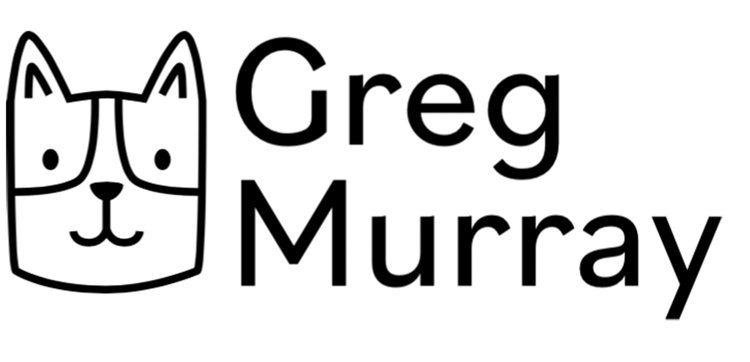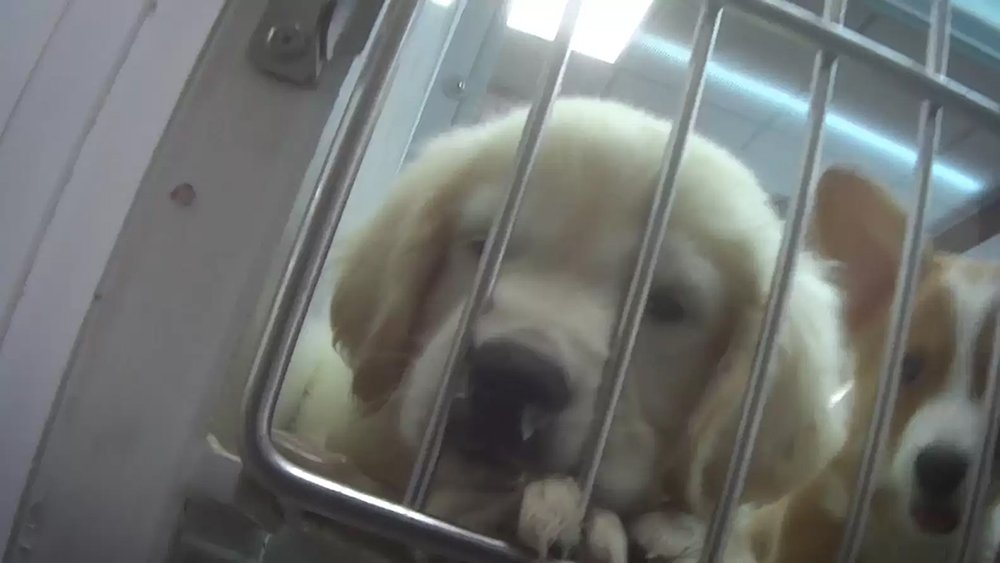Please stay away from pet stores!
Let’s talk about Petland since they are one of the worst companies out there. Petland is a franchise chain of pet stores that primarily sell puppies, kittens, and small animals like birds, rabbits, and guinea pigs. On the surface, they appear to be a friendly and inviting place to buy a pet from, with brightly lit stores and a wide variety of animals to choose from. However, a closer look at Petland's practices reveals that they are not a responsible place to buy a pet from.
A sick dog from a Petland store in Georgia: HSUS
First and foremost, Petland has a long history of sourcing puppies from puppy mills. Puppy mills are large-scale breeding operations that prioritize profit over the well-being of the animals. Dogs in puppy mills are often kept in cramped, unsanitary conditions, with little to no human interaction or veterinary care. As a result, puppies from these facilities are often sick, poorly socialized, and prone to genetic defects and health problems.
Petland has been accused of sourcing puppies from puppy mills on multiple occasions. In 2008, the Humane Society of the United States conducted an investigation into Petland's practices and found evidence that many of their puppies came from large-scale breeding operations with numerous animal welfare violations. In response, Petland claimed that they only worked with "USDA-licensed breeders," but this is not a guarantee of responsible breeding practices or animal welfare. The USDA has been criticized for its lax oversight of commercial dog breeding facilities, and many puppy mills have managed to retain their licenses despite numerous violations.
In addition to sourcing puppies from puppy mills, Petland often sells puppies that are too young to be separated from their mothers. According to the American Veterinary Medical Association, puppies should not be separated from their mothers until they are at least 8 weeks old. This is because puppies rely on their mothers for socialization and early learning, and separating them too soon can lead to behavioral problems and health issues. However, Petland has been known to sell puppies as young as 6 weeks old, which is a clear violation of animal welfare standards.
Another issue with Petland is their lack of transparency about their animal sourcing practices. The company claims that they work with "local breeders," but they do not provide any information about these breeders or their breeding practices. This lack of transparency makes it impossible for customers to know where their pets are coming from or whether they were raised in humane conditions.
In addition to their questionable animal sourcing practices, Petland has been criticized for their high prices and aggressive sales tactics. According to some former employees and customers, Petland employees are trained to use high-pressure sales tactics to convince customers to buy over priced pets and expensive pet products. In some cases, they may even misrepresent the health or temperament of the animals they are selling in order to make a sale. This kind of behavior is not only unethical, but it can also lead to customers purchasing pets that they are not equipped to care for.
Petland has also faced legal action for its treatment of animals. In 2014, a Petland store in Chicago was sued by the city for multiple violations of animal welfare laws, including keeping animals in unsanitary conditions and failing to provide adequate veterinary care. In 2016, a Petland store in Las Vegas was fined for failing to provide proper care for a sick puppy, leading to its death.
Petland is not a responsible place to buy a pet from. Their history of sourcing animals from puppy mills, selling animals too young to be separated from their mothers, and lack of transparency about their animal sourcing practices are all red flags for potential customers. In addition, their high prices and aggressive sales tactics are not in the best interest of the animals or the customers. If you are looking to add a pet to your family, it is important to do your research and choose a reputable breeder or rescue organization that prioritizes animal welfare over profit. In my opinion, your local shelter is the best place to get a new pet for your home. You save a life and open up a spot for another pet at the shelter or rescue organization.
Please note that some pet stores only offer rescue animals. For example, in 2024, all pet stores in the state of New York will only be able to work instead with shelters to offer rescued or abandoned animals up for adoption. It will also ban breeders from selling more than nine animals a year. They will no longer be able to sell dogs, cats or rabbits from breeders. It’s important to do your research when you are looking to bring a new pet into your home. Make sure you know where the pet came from!

